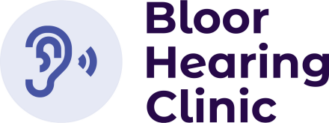
Our Blog
Know the Signs of Hearing Loss — and What To Do About Them

The chances of developing hearing loss increase with age, but it can also be caused by loud noises, disease, or genetics. Hearing loss can affect anyone, from newborns to older adults, and it can happen suddenly or develop gradually, making it difficult to notice. You shouldn’t wait for signs to worsen before getting a regular Canada hearing test. This procedure will help you understand these hearing loss signs and provide steps to help prevent further damage and improve your quality of life.
In today’s post, we’ll shed light on the types of hearing loss, their symptoms, possible causes, and simple ways to be more aware of these signs. We’ll also discover some dos and don’ts once you start noticing trouble hearing.
Hearing Loss Overview
Notably, many individuals are unaware of their hearing impairment. A study of Canadians aged 40 to 79 found that while 8% of men and 5% of women self-reported hearing impairment, actual measurements revealed that 63% of men and 46% of women had measurable hearing loss.
Hearing loss occurs when there’s a problem within the hearing system. Sound signals fail to reach the brain properly due to issues in the outer ear, middle ear, inner ear, or auditory nerve. When this condition occurs, it leads to difficulties in understanding conversations, hearing phone calls, or following dialogue on television. This condition can affect individuals of all ages, from infants to the elderly. In fact, it is relatively common. According to the Cleveland Clinic:
Over 1 in 10 people in the United States experience some degree of hearing loss.
Approximately 1 in 3 adults over 65, and nearly half of those 75 and older, have age-related hearing loss.
About 2 in 1,000 babies are born with some form of hearing loss.
What Are the Different Kinds of Hearing Loss?
There are three main types of hearing loss:
Sensorineural hearing loss
Conductive hearing loss
Mixed hearing loss
Sensorineural is the most common type of hearing loss caused by damage to the inner ear or auditory nerve. It is usually permanent. Age-related hearing loss falls under this category. This type of hearing loss progresses slowly, affects both ears and typically becomes noticeable after age 50. It cannot be prevented or cured; only managed. Factors such as working in noisy environments or engaging in loud activities can accelerate its onset.
Conductive hearing loss results from blockages or damage in the outer or middle ear, such as ear infections, earwax buildup, or ruptured eardrums. This type can often be treated.
Lastly, mixed hearing loss is a combination of both sensorineural and conductive hearing loss.
Hearing impairment also includes profound hearing loss to severe hearing loss. These are the most advanced forms of hearing impairment, where individuals have little to no ability to hear speech or environmental sounds without assistive devices.
What Causes Hearing Loss?
Causes of hearing loss range from age-related and noise-induced hearing loss to ear infections, neck surgery, exposure to loud sounds, and certain medical conditions. These lead to challenges in daily communication. For instance, individuals with mild hearing loss may struggle to understand higher-pitched voices or distinguish certain consonants, causing miscommunication and frustration. These causes, from aging and exposure to loud sounds, can highly likely result in permanent hearing loss.
What Are the Symptoms or Signs of Hearing Loss?
Hearing loss symptoms vary depending on severity and type. Often, family members or friends notice changes before the affected person does. It manifests differently in adults and children, affecting communication, social interactions, and overall quality of life. Recognizing the specific signs in each group is crucial for timely intervention.
In Adults
Trouble understanding speech, especially in noisy places
Asking people to repeat themselves frequently
Watching TV at a higher volume than others prefer
Difficulty following conversations, particularly with multiple people
Hearing certain sounds but struggling with others, like high-pitched sounds
Ringing in the ears (tinnitus)
Straining to detect sound signals in one or both ears
Perception of muffled or unclear sounds
Relying on visual cues
In Children and Babies
Not responding to their name or loud noises
Delayed speech development
Trouble paying attention or following instructions
Difficulty detecting softer or high-pitched sounds
Other children and teachers noticing hearing problems
Academic challenges
Turning up the volume excessively
Social withdrawal
Tugging or pulling at ears
Less Obvious Signs of Hearing Loss
Less obvious signs of hearing loss can often be overlooked or mistaken for other issues, such as inattentiveness or cognitive decline. These subtle signs may indicate early or progressive hearing impairment. These include:
Misinterpreting words in conversation
Relying on facial expressions and lip-reading to understand speech
Experiencing ear pain or pressure in the ear canal
Avoiding social situations due to difficulty hearing
Struggling with background noise
Someone with hearing loss might mishear certain words and respond incorrectly, leading to confusion or awkward exchanges. This is especially common with words that sound similar but differ in high-frequency consonants like “s”, “t”, or “f”. Without realizing it, they may focus more on lip movements, facial expressions, or body language to fill in gaps in conversation.
Moreover, people with undiagnosed hearing loss might start avoiding social gatherings, phone calls, or meetings because it can be a real strain for them to follow conversations. This can lead to isolation and frustration.
When Do You Start Noticing These Signs?
Hearing loss can occur at any age, but older adults are most at risk due to the gradual wear and tear of hair cells in the inner ear. Noise-induced hearing loss can also develop over time from repeated exposure to loud music, rock concerts, or working in a noisy place. Some people experience sudden hearing loss due to infections, injuries, or medical conditions. These situations can lead to different types of hearing loss, including sensorineural, conductive, or mixed.
What Should You Do Upon Recognizing These Signs?
If you or someone you know has hearing loss symptoms, it is crucial to see an audiologist. A specialist can perform hearing tests, such as the otoacoustic emissions test, to determine the type and severity of the condition. Taking early action can help prevent further deterioration and improve communication. Here’s what you should do:
1. Acknowledge the Signs and Take Them Seriously
Don’t dismiss symptoms as a part of aging or temporary issues. Hearing loss can affect daily life, relationships, and mental health, so it’s essential to recognize the signs early.
2. Schedule a Hearing Test with a Professional
Consult an audiologist or an ear, nose, and throat (ENT) specialist for a comprehensive hearing evaluation. A hearing test (audiometry) will determine the severity and type of hearing loss.
3. Protect Your Hearing from Further Damage
If your hearing loss is linked to noise exposure, start using hearing protection such as earplugs or noise-canceling headphones in loud environments. Reduce prolonged exposure to loud music, machinery, or other high-decibel sounds.
4. Consider Hearing Aids or Assistive Devices
If diagnosed with hearing loss, discuss treatment options with your audiologist. A modern Canada hearing aid, cochlear implant (for profound hearing loss), or assistive listening device can significantly improve hearing and communication.
5. Learn Communication Strategies
As a form of adapting to the condition, take some initiatives to improve communication, such as:
Ask others to speak clearly and at a moderate pace rather than shouting.
Position yourself to see the speaker’s face so that you can rely on visual cues.
Minimize background noise when having conversations.
6. Make Environmental Adjustments
Modify your home or workplace to improve hearing clarity. These may include:
Using captioning on TVs
Installing amplified telephones or doorbells with visual alerts
Choosing quieter seating in restaurants or meetings
7. Seek Support and Stay Socially Engaged
Untreated hearing loss can lead to isolation and depression. Stay connected by joining hearing loss support groups, using hearing aids, and informing friends and family about your condition to help them communicate more effectively.
8. Monitor and Follow Up Regularly
Hearing loss can change over time. Regular checkups with an audiologist ensure that your hearing aids or treatment plan is still effective.
Questions You Can Ask Your Audiologist
Here are some questions you can ask your audiologist if you want to understand your condition:
What type of hearing loss do I have? (Sensorineural, conductive, or mixed?)
What is the severity of my hearing loss? (Mild, moderate, severe, or profound?)
Is my hearing loss permanent, or can it be treated or improved?
What could have caused my hearing loss? (Age, noise exposure, infections, genetics, etc.)
Will my hearing loss get worse over time? What can I do to slow it down?
After testing and diagnosis:
What tests did you perform, and what do the results mean?
Should I have additional tests to rule out other medical conditions?
Do I need regular hearing check-ups? How often should I come back?
When asking about your treatment options:
Would hearing aids help my condition? If so, what type do you recommend?
Are there alternative treatments, such as cochlear implants or assistive devices?
What features should I look for in a hearing aid? (Rechargeable, Bluetooth, noise reduction, etc.)
How long will it take to adjust to wearing hearing aids?
What if I try hearing aids and they don’t work for me?
To improve daily life and communication:
What strategies can I use to improve communication in noisy environments?
Are there assistive devices that can help me with phone calls, TV, or work meetings?
How can I protect the hearing I have left from further damage?
You can also ask about insurance and costs:
Are hearing aids covered by insurance or government programs?
What is the cost of hearing aids, and do you offer financing or payment plans?
Do you provide trial periods for hearing aids, and what is your return policy?
Lastly, you can ask questions about your next steps:
What should I do if my hearing worsens?
Do you recommend speech therapy or auditory training?
Where can I find support groups or resources for people with hearing loss?
Asking these questions helps you make informed decisions and ensure you get the best care for your hearing health.
What Else Can You Do Once You Start Noticing Signs of Hearing Loss?
There are practical ways to manage hearing loss and improve daily communication:
Dos | Don’ts |
Reduce background noise when talking to others. | Forget to wear hearing protection if you can’t avoid loud noises and rock concerts. |
Talk to people in quieter places. | Ignore hearing problems—they may worsen over time. |
Face the person speaking to you to read facial expressions. | Have neck surgery or treat ear infections without consulting a healthcare provider. |
Use hearing aids or cochlear implants if recommended. | Wait too long before getting a hearing loss diagnosed. |
Consider other tests if your hearing continues to decline. | Expose yourself to loud noises, loud music through headphones at high volumes, and rock concerts. |
Conclusion
Early signs of hearing loss can have different faces, so it’s essential to have a regular hearing test. Even just recognizing symptoms can help you take the right steps to protect your hearing health and maintain a good quality of life. If you notice signs in yourself or a loved one, schedule a hearing test with an audiologist as soon as possible.

